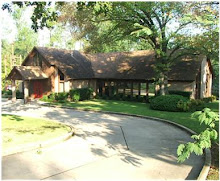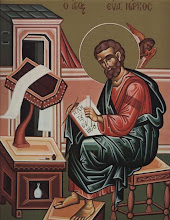This week's email is a bit late. So if it's not useful as preparation for tomorrow's worship, I trust the following introduction and review of Bible Study method will be helpful every day as we "read, mark, learn and inwardly digest" the Holy Scriptures (BCP, p. 236)
As introduction or, for many of you, a reminder, of stable approach to reading the Bible, please watch a short, six-minute, You Tube video on inductive Bible Study.
This short video introduces the three steps of Observation, Interpretation (or Meaning), and Application. These three steps are what I use as my basic method each time I approach the Bible, whether in sermon preparation each week, or in my devotional readings each morning at prayer.
Following the Bible Overview by Matthias Media, I tend to summarize the steps as: Context, Observation, Meaning, Application.
Context: What in the Bible am I reading: a psalm, a story (narrative), a letter (epistle)?
Observation: Focus on the words on the page asking: Who, What, Where, When, How and Why?
Meaning (or interpretation): What do these words in their context communicate? What does this mean?
Application: In light of what the Bible says, what do I do?
This method can be a little cumbersome to learn. But I've found that once it becomes a habit of your basic approach to Bible study, then Bible study becomes much more enjoyable and practical.
The Sunday readings are:
Ecclesiastes 1:12-14; 2:1-7, 11, 18-23
Psalm 49:1-11
Colossians 3:5-17
Luke 12:13-21
Announcements
This Sunday evening, August 1 at 6pm, we are hosting week one of the 5-week Summer Worship Series. Please join us with others from the community as we welcome Rev. Matt Every of First Christian Church. The theme for the series is "Transformation."
The 9:45am Sunday morning Screwtape Letters study will cover letters 25-27 this week. This study will conclude in the next week or two, and take a short break. In the month of September the Sunday morning study will focus on the lectionary readings for each week. This will make the Sunday morning study a great occasion to practice and discuss the text using the Inductive (or COMA) method of Bible study.
Blessings,
Fr Greg+
As introduction or, for many of you, a reminder, of stable approach to reading the Bible, please watch a short, six-minute, You Tube video on inductive Bible Study.
This short video introduces the three steps of Observation, Interpretation (or Meaning), and Application. These three steps are what I use as my basic method each time I approach the Bible, whether in sermon preparation each week, or in my devotional readings each morning at prayer.
Following the Bible Overview by Matthias Media, I tend to summarize the steps as: Context, Observation, Meaning, Application.
Context: What in the Bible am I reading: a psalm, a story (narrative), a letter (epistle)?
Observation: Focus on the words on the page asking: Who, What, Where, When, How and Why?
Meaning (or interpretation): What do these words in their context communicate? What does this mean?
Application: In light of what the Bible says, what do I do?
This method can be a little cumbersome to learn. But I've found that once it becomes a habit of your basic approach to Bible study, then Bible study becomes much more enjoyable and practical.
The Sunday readings are:
Ecclesiastes 1:12-14; 2:1-7, 11, 18-23
Psalm 49:1-11
Colossians 3:5-17
Luke 12:13-21
Announcements
This Sunday evening, August 1 at 6pm, we are hosting week one of the 5-week Summer Worship Series. Please join us with others from the community as we welcome Rev. Matt Every of First Christian Church. The theme for the series is "Transformation."
The 9:45am Sunday morning Screwtape Letters study will cover letters 25-27 this week. This study will conclude in the next week or two, and take a short break. In the month of September the Sunday morning study will focus on the lectionary readings for each week. This will make the Sunday morning study a great occasion to practice and discuss the text using the Inductive (or COMA) method of Bible study.
Blessings,
Fr Greg+



